Fluent in French: Tips to Speak Like a Native!
Hello everyone, and welcome to this new blog post! My name is Alain, and today we are going to explore how to speak French orally like a true native. In everyday conversations, some sounds and words are often shortened or omitted, which gives spoken French a smoother rhythm. Get ready to discover these simplifications so that you can recognize and use them in your own exchanges.
What Are Colloquial Expressions?
Colloquial expressions are phrases used in everyday conversation that often differ from formal or academic language. They reflect the way natives speak and can involve contractions, omissions, and slang. This is the reality of daily conversations in French.
Examples of Colloquial Expressions to speak French like a native!
1. “Eh bien, tu n’as qu’à revenir tout à l’heure.”
Standard Form: “Eh bien, tu n’as qu’à revenir tout à l’heure.”
Colloquial Form: “Bin t’as cas rev’nir t’à l’heure.”
In this transformation, “tu n’as qu’à” becomes “t’as cas,” and “tout à l’heure” is shortened to “t’à l’heure.” This demonstrates how native speakers often contract phrases to make them more fluid and easier to say.
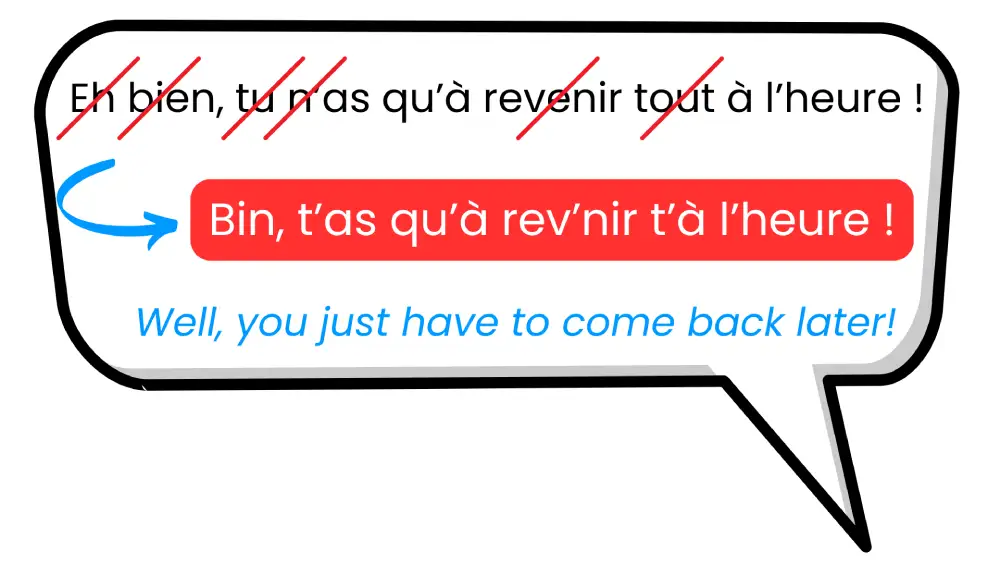
2. “Il n’y en a plus.”
Standard Form: “Il n’y en a plus.”
Colloquial Form: “Y en a plus.”
Here, the subject “il” and the negation “ne” are dropped. This simplification is common in casual speech, making it quicker and less formal.
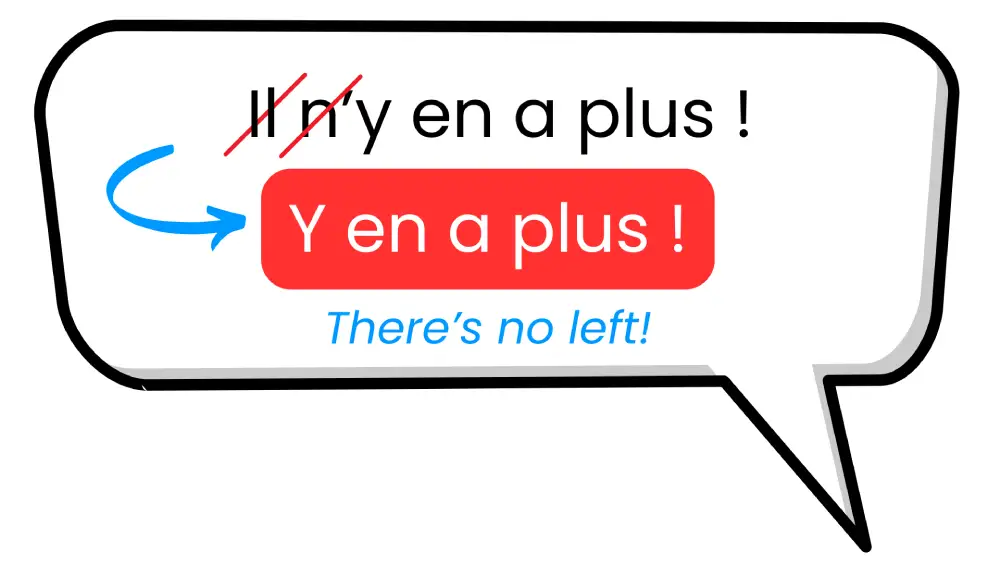
3. “On me dit qu’il y a un problème.”
Standard Form: “On me dit qu’il y a un problème.”
Colloquial Form: “On m’dit qui y’a un problème.”
In this example, “me” becomes “m'” and “qu’il” is replaced by “qui.” This shows how native speakers often omit sounds for a more relaxed conversational tone.
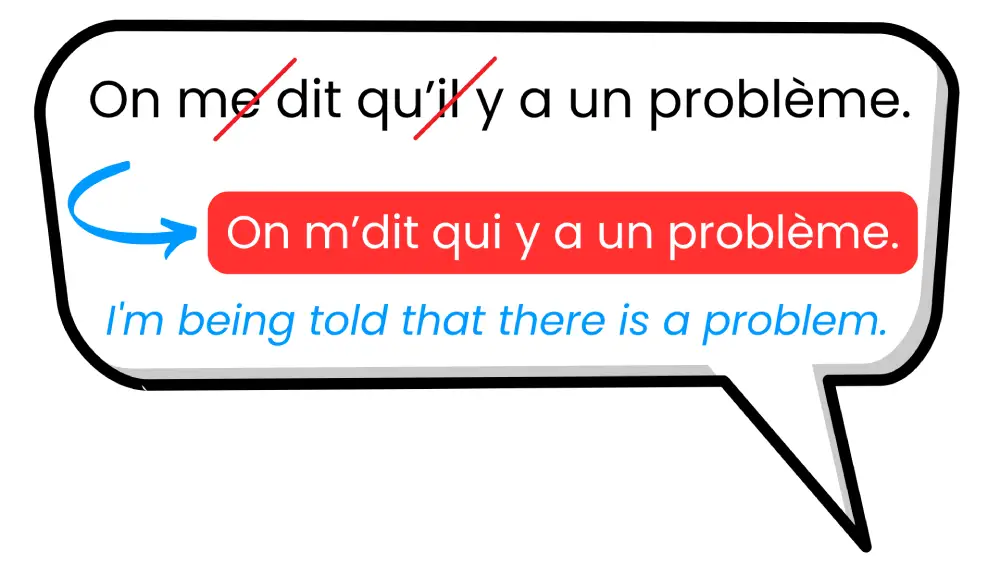
4. “Je n’ai pas le temps.”
Standard Form: “Je n’ai pas le temps.”
Colloquial Form: “J’ai pas l’temps.”
Once again, we see the negation “ne” disappear, which is a hallmark of informal French. This makes the phrase sound more straightforward and natural.
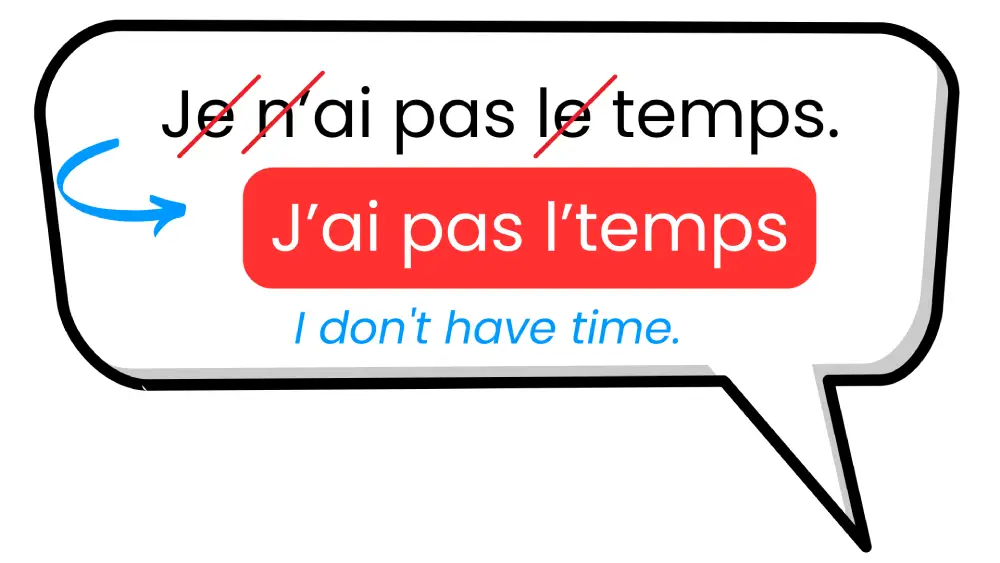
5. “Qu’est-ce que tu dis ?”
Standard Form: “Qu’est-ce que tu dis ?”
Colloquial Form: “Qu’est-ce tu dis ?”
In this case, the word “que” is omitted. Native speakers often drop unnecessary words, streamlining their speech.
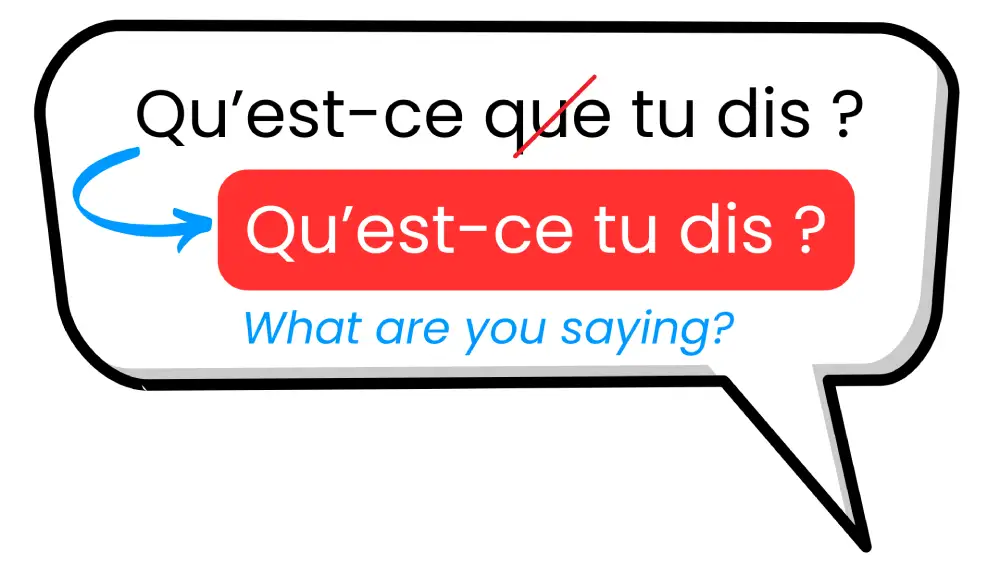
6. “Il faut que j’y aille.”
Standard Form: “Il faut que j’y aille.”
Colloquial Form: “Faut qu’j’y aille.”
Here, “il” is dropped entirely. This phrase illustrates how colloquial French tends to eliminate pronouns and auxiliary verbs to make speech quicker.
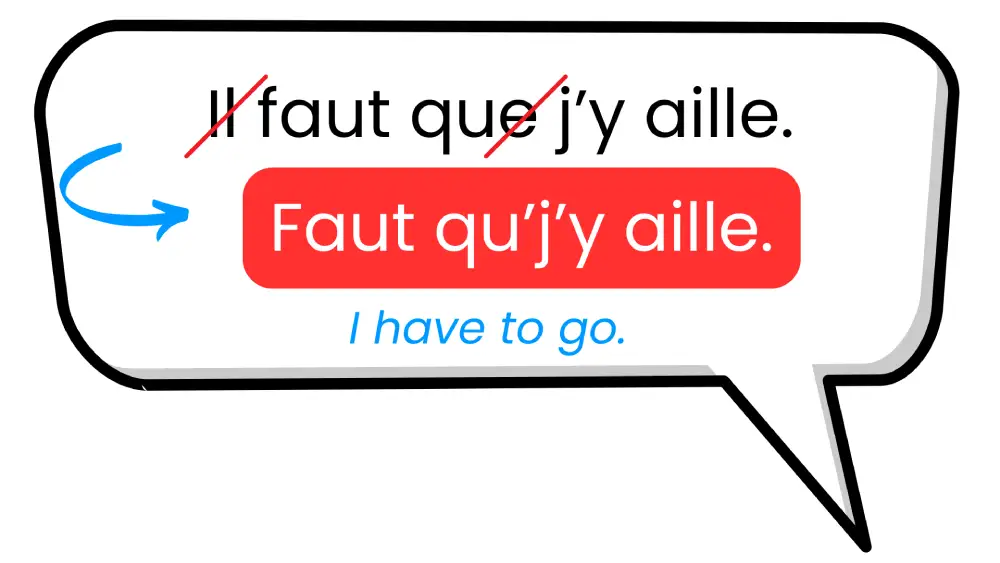
7. “Peut-être pas.”
Standard Form: “Peut-être pas.”
Colloquial Form: “P’t êt’ pas.”
The “e” in “peut” is dropped, showing how informal speech often involves shortening words for convenience.
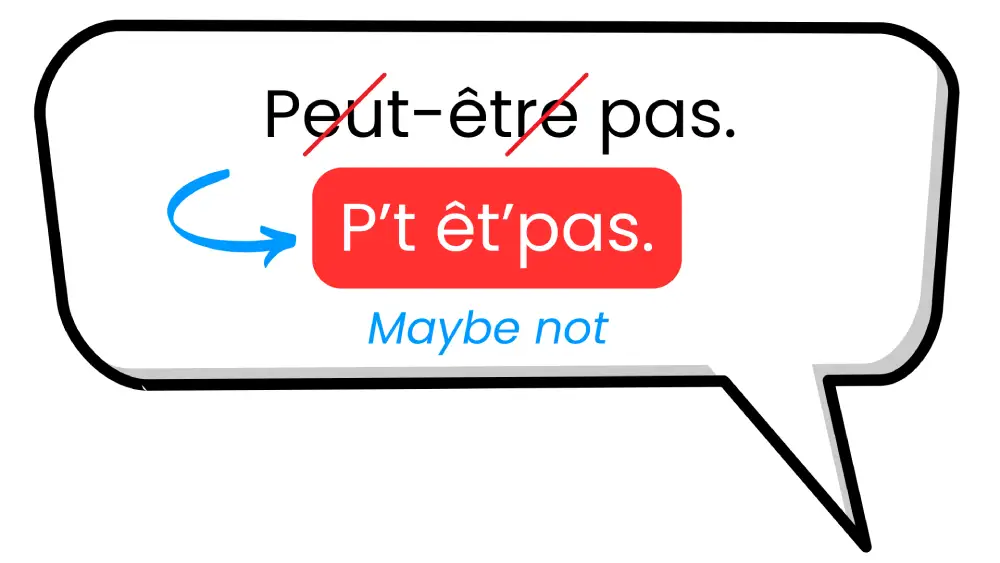
8. “S’il te plaît.”
Standard Form: “S’il te plaît.”
Colloquial Form: “S’te plaît.”
This polite request is made more casual by shortening “s’il” to “s’t.” Such contractions are common in friendly conversations.

9. “Je suis content.”
Standard Form: “Je suis content.”
Colloquial Form: “J’suis content.”
The pronoun “je” is contracted to “j’,” making the phrase sound more familiar and less formal.
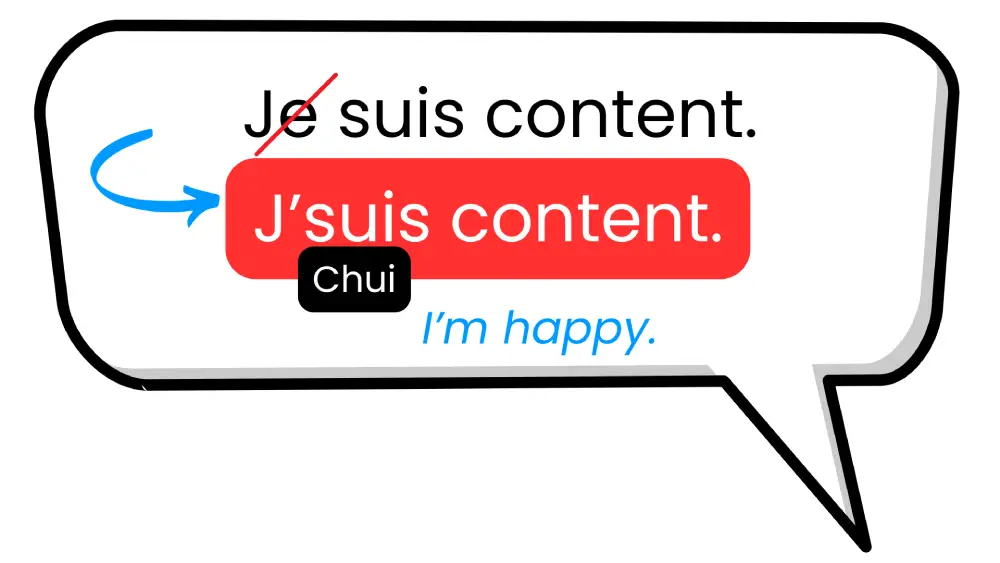
10. “Qu’est-ce qu’il y a ?”
Standard Form: “Qu’est-ce qu’il y a ?”
Colloquial Form: “Qu’est-ce qui y a ?”
In this transformation, “qu’il” changes to “qui.” This is a frequent occurrence in spoken French, though it might not be grammatically correct.
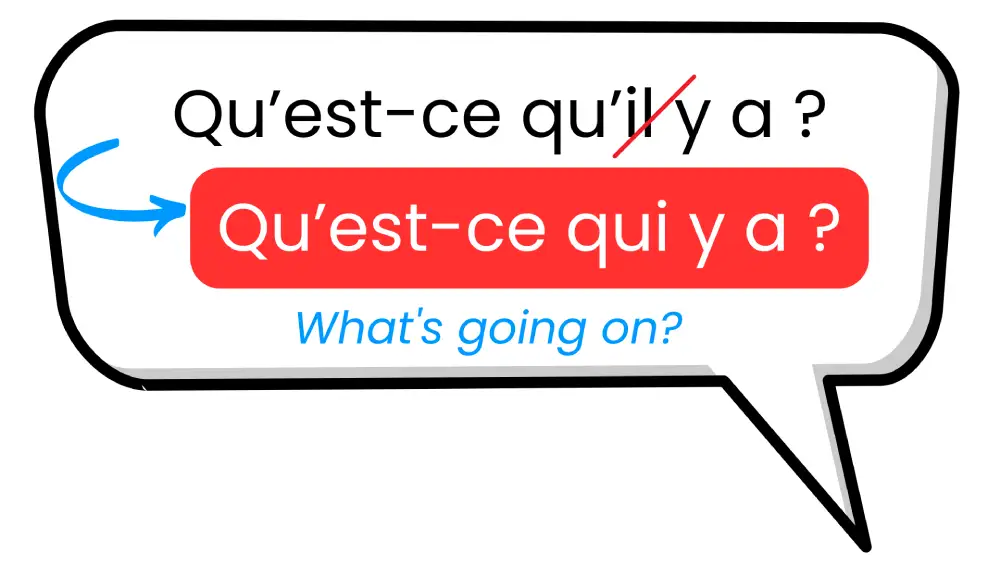
11. “Il me faut ton aide.”
Standard Form: “Il me faut ton aide.”
Colloquial Form: “I m’faut ton aide.”
Both “il” and “me” are contracted, illustrating how quickly words can be combined in casual speech.
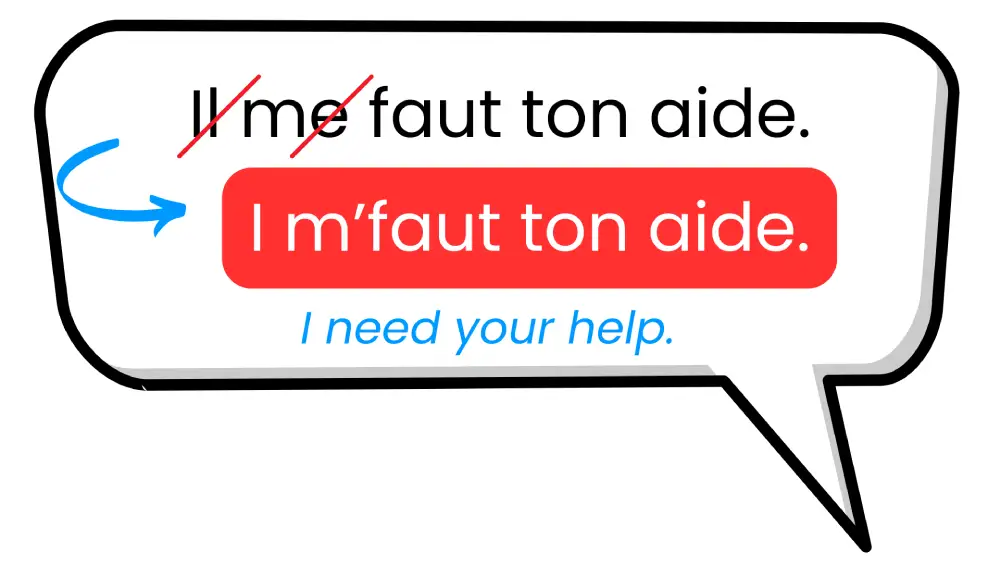
12. “Tu as besoin d’une petite pause.”
Standard Form: “Tu as besoin d’une petite pause.”
Colloquial Form: “T’as b’soin d’une p’tite pause.”
Here, “tu as” becomes “t’as,” and “petite” is shortened to “p’tite.” This highlights the tendency in colloquial French to drop syllables.
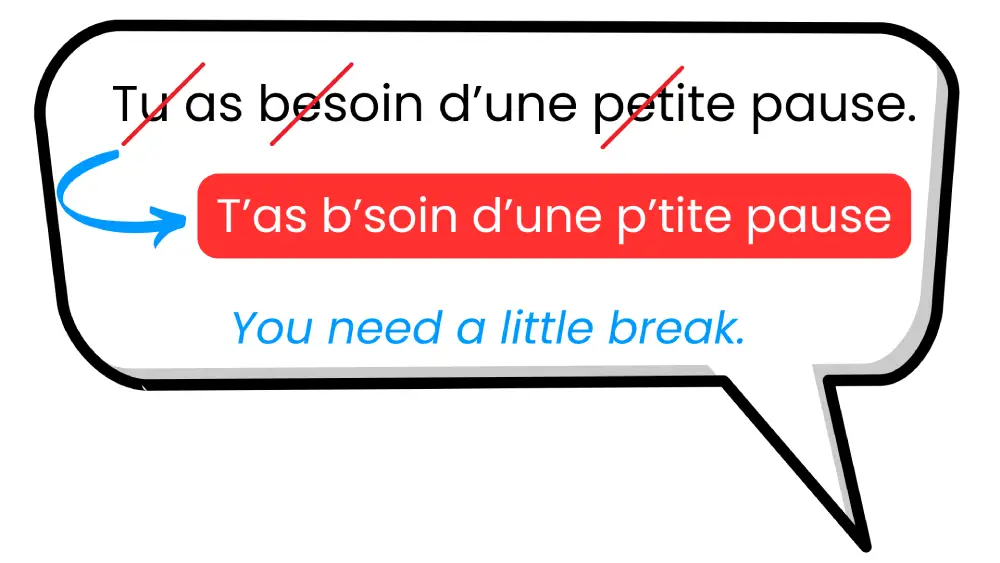
Additional Examples of Contractions
Common Contractions
Colloquial French often involves shortening words:
“Je vais au cinéma.” becomes “J’vais au ciné.”
“Cinéma” is abbreviated to “ciné,” making it more casual.
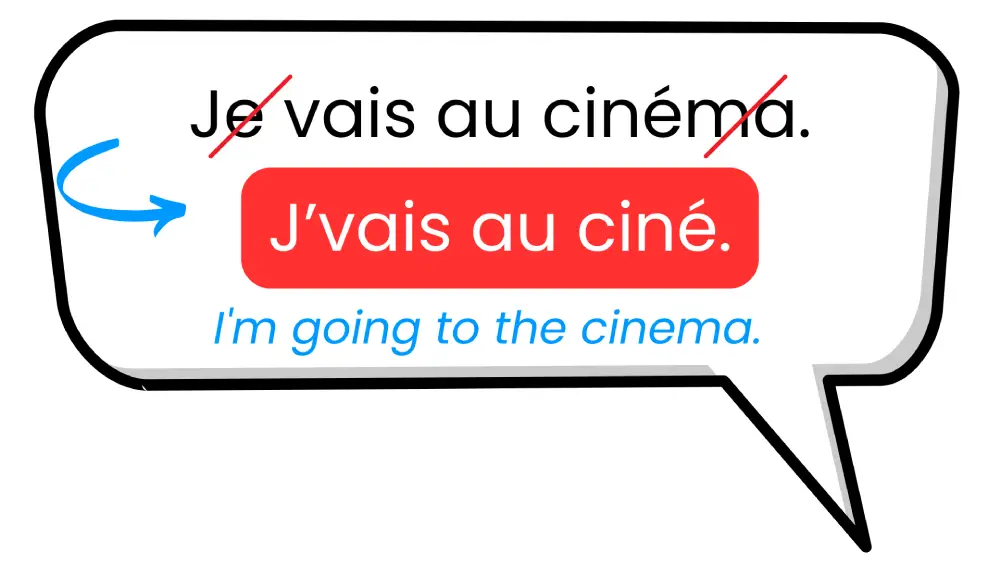
“Il y a un nouvel appartement.” becomes “Y a un nouvel appart.”
“Il y a” simplifies to “y a,” while “appartement” shortens to “appart.”
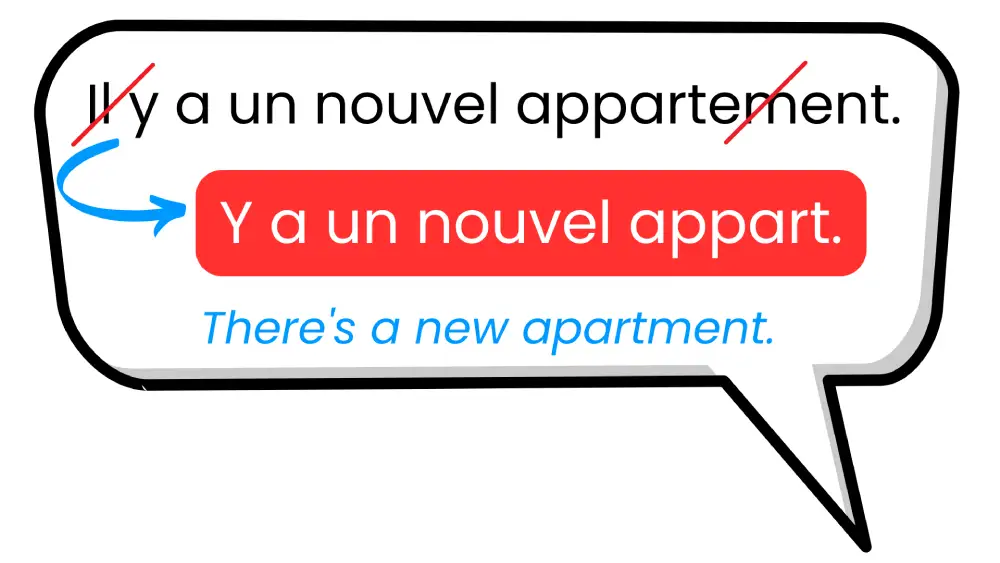
“Tu as un ordinateur ?” becomes “T’as un ordi ?”
“Ordinateur” is commonly shortened to “ordi.”
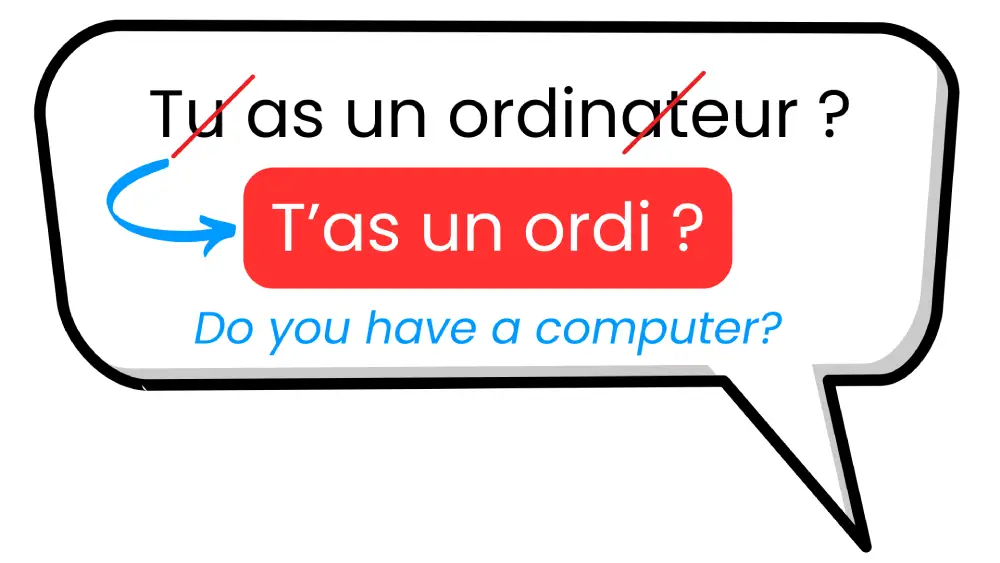
“C’est un restaurant sympathique.” becomes “C’est un restau sympa.”
Restaurant” becomes “restau,” and “sympathique” is often abbreviated to “sympa.”
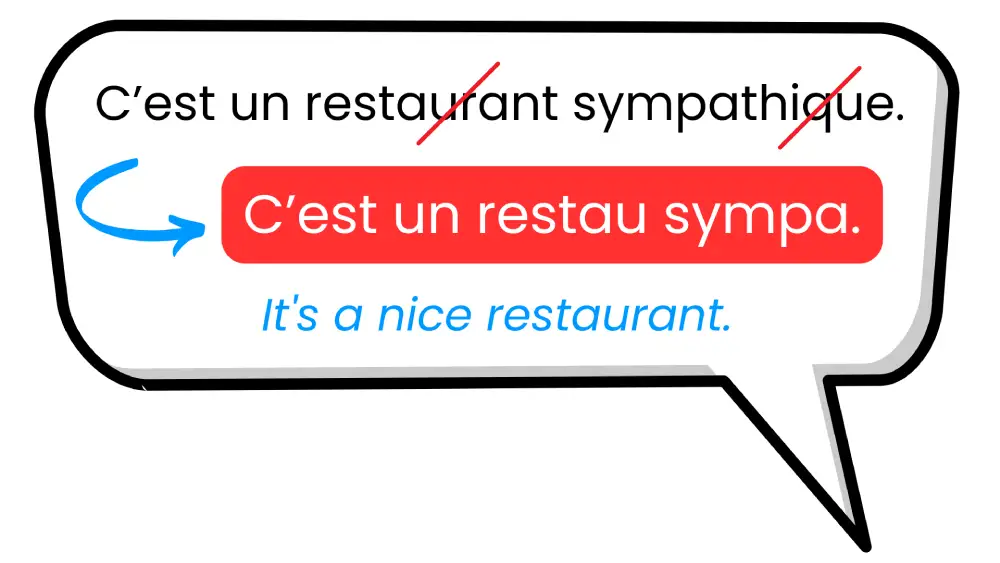
“Je viens cet après-midi.” becomes “J’viens c’t’aprèm.”
“Cet après-midi” is contracted to “c’t’aprèm” for a more relaxed sound.
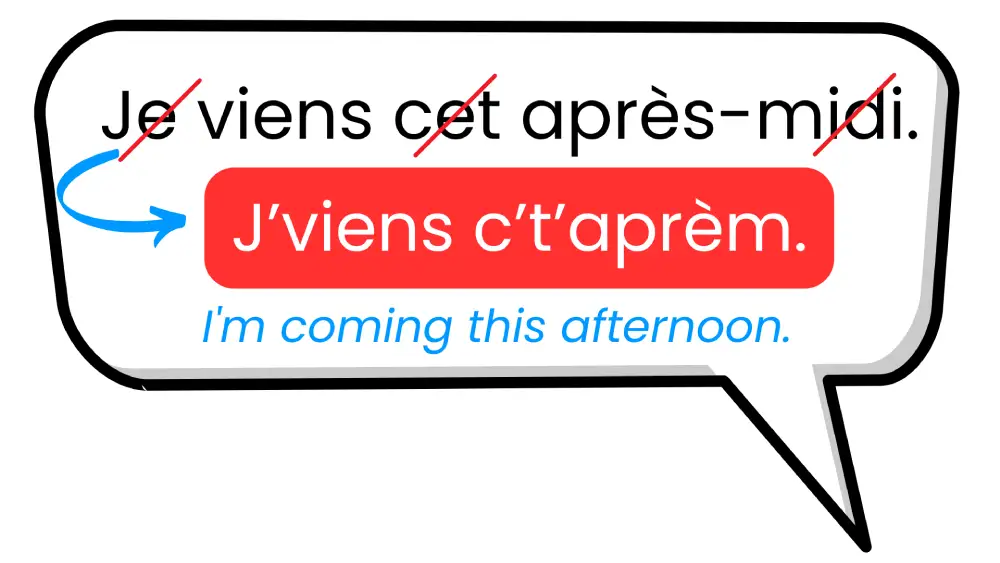
“Tu as regardé la télévision ?” becomes “T’as regardé la télé ?”
“Télévision” is commonly shortened to “télé,” further streamlining the phrase.
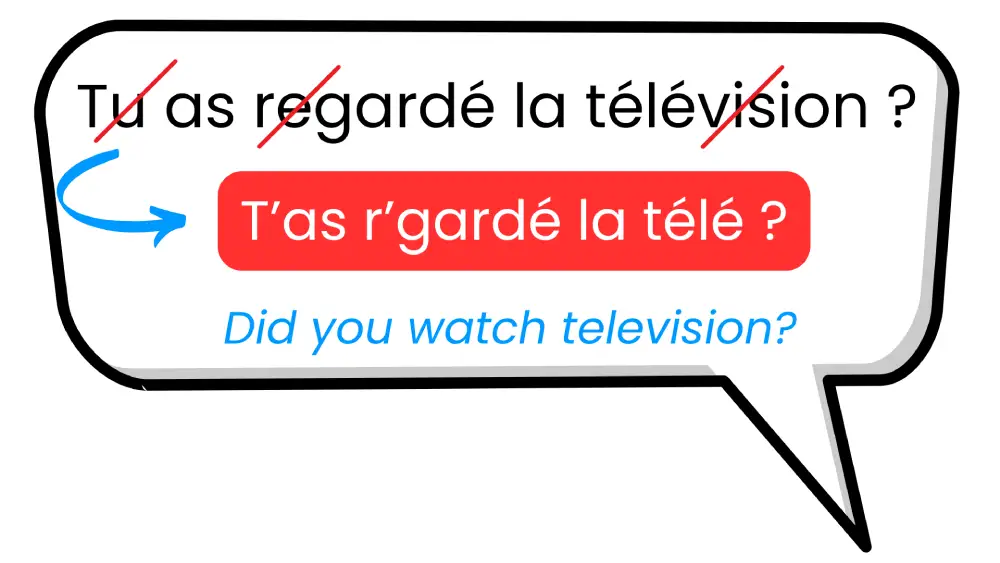
Final words
There you have it, that’s the end of our exploration of colloquial expressions in French! I hope you enjoyed this article and feel better prepared to speak like a native. By using these simplifications, abbreviations, and contractions, you’ll be able to integrate more easily into everyday French conversations.





